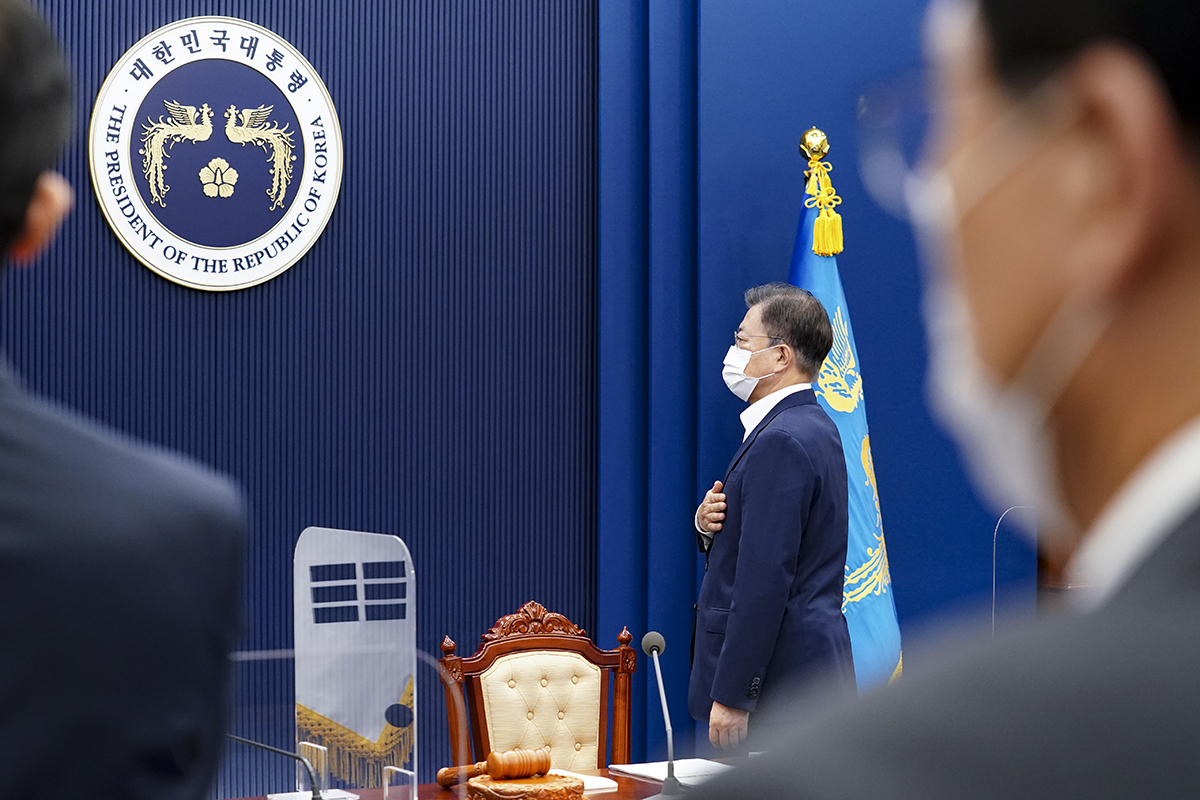 |
President Moon Jae-in attends a weekly Cabinet meeting at Cheong Wa Dae on Tuesday. (Cheong Wa Dae) |
President Moon Jae-in on Tuesday pledged to play a bigger role in the international community, touting the nation’s recent status upgrade as an “advanced nation” as recognized by an UN agency last week.
“I’m very proud that the status change is the first of its kind since the establishment of the UN Conference on Trade and Development in 1964,” the president said at the start of a weekly Cabinet meeting at Cheong Wa Dae.
“We will continue to move forward by carrying out our responsibility and role in the international community.”
On Friday, the UNCTAD decided to reclassify Korea as an advanced economy under the List B group alongside 31 other countries, including the US, UK, Germany, France and Japan.
Korea joined the UN agency in 1964 as a developing economy under the List A group consisting of Asian and African countries.
It is the first time that the agency has reclassified the status of a member nation in its 57-year history.
Separate from the regional categorization, working-level talks within the agency have been conducted through informal four groupings – G-77 Plus China that includes 77 developing countries; the European Union; the JUSCANZ Group consisting of non-EU advanced countries; and the Eurasian Economic Union.
Korea was previously included in the G-77, but since joining the Organization for Economic Cooperation and Development in 1996, it has been working with the JUSCANZ Group.
The UNCTAD is an intergovernmental organization that aims to support the economic growth and trade of underdeveloped countries. Korea has become a donor country from being a recipient of UN aid in half a century, becoming the sixth-largest “Aid-for-Trade” donor in the OECD.
During the Cabinet meeting, Moon also proclaimed a new law compensating small businesses and microenterprises for their losses attributable to social distancing measures imposed to contain the COVID-19 pandemic.
“It is meaningful that the government has come up with an institutional foundation for systemic compensation for smaller businesses,” he said.
“I’m asking for the National Assembly to pass a bill on another batch of supplementary budgets at an early date in order to offer financial support for damages before the law is introduced.”
By Lee Ji-yoon (
jylee@heraldcorp.com)








![[Today’s K-pop] Blackpink’s Jennie, Lisa invited to Coachella as solo acts](http://res.heraldm.com/phpwas/restmb_idxmake.php?idx=644&simg=/content/image/2024/11/21/20241121050099_0.jpg)